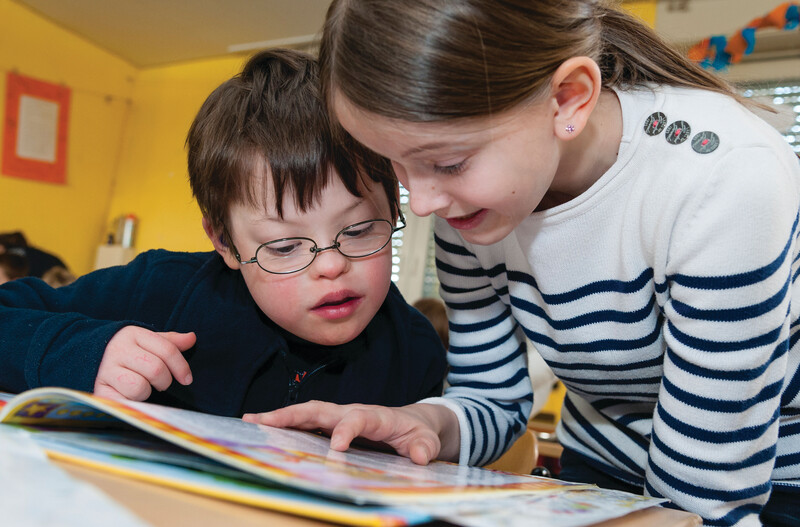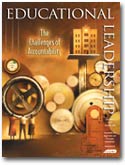The decision to accept a student with Down syndrome into our kindergarten last year was difficult, despite our openness to accepting students with disabilities.
The small class sizes of the Jewish Reform day school for which I am Head of School allow for plenty of individual attention to students with diverse needs, including those with mild learning disabilities and emotional problems. We have helped children with Asperger's syndrome develop confidence and social skills. We have adapted the curriculum for dyslexic children. We have enabled children with impulse control problems to better manage their behavior. Our two academic support teachers provide tutorials for children who are gifted and for those with slight learning impairments.
But a Down syndrome student who was preverbal—prone to screaming outbursts and running away, and not completely toilet trained—presented a new challenge. We had watched him move through our preschool. His older sibling was in our day school, and we had an excellent partnership with the boy's parents and his therapeutic companion. Because we believe strongly in inclusive education, the staff, lay leaders of our education commission, and Temple clergy deliberated together and decided to give it a try. What has this decision meant to us? Michael's kindergarten teacher explains.
The Kindergarten Teacher Speaks
I'm sure that every teacher—whether new or veteran, as I am—goes through the same feelings the night before the new school year begins. What will this year's class be like? When I walked into my classroom in September of last year, I saw many different expressions on the children's faces. Some students were shy, some were scared, some were confident, and some were bubbling over with the excitement of being grown-up enough to start kindergarten. And then there was Michael, who had a very distant look in his eyes.
When the children gathered on the carpet, I explained some kindergarten rules. When they hear, “The signal is on,” they need to stop, look, and listen. If they have something to say, they need to raise a hand. The children learned to follow these rules quickly.
But Michael was unable to follow the rules. For the first two months of school, Michael repeated “Beach Allie” throughout the day. He had gone to the beach during the summer and could say only these two words by himself. The children in the class very quickly learned to ignore the disruption.
In February, however, Michael began to raise his hand rather than talk out at any time. Usually, he replied to questions with one word. In April, he responded with one word and then made a complete sentence by echoing me. The children were very patient—a great lesson for life—as they waited for Michael to respond.
For the first seven months, Michael screamed when an activity required small motor skills. Again, the children tuned out the disruption. Unfortunately, I found these disruptions exhausting. But when Michael came up to me later in the day, gave me a big hug, and said, “Marion, friend,” I knew it was all worthwhile. Near the end of the year, Michael chose to go to the table to work on cutting and writing for his free-choice activity. When you held his hand to help, you could feel that he was relaxed. Michael had more play dates after school than any other child in our class did. All of the students showed him respect.
I always worried about what would happen if the children mocked Michael's speech patterns or behavior. Then, one time, they did. They laughed at Michael's response and began to make fun of him by using inappropriate articulation. I asked Nicole, his therapeutic companion, to take Michael out of the room. Then I reminded the children that Michael does not learn the same way they do. I told them that they are more important to Michael than I am. Michael looks to them to learn what to do. They are Michael's teachers. The children understood and from then on took their new role seriously.
Last year, Michael taught the class and me something far more important than any phonics or math or science lesson. I have learned that each child has special gifts to share with others. When a school environment views all students as gifts of God, everyone benefits.
Thank you, Michael, for being the best teacher my class could ever have and for helping me be the best teacher I know how to be.

